Neptune 开发板w800 鸿蒙系统harmonyOS_hello world程序编程测试
Neptune w800开发版ubuntu linux环境编译通过——如何搭建开发环境
windows写代码,linux编译
Utunbu安装Samba服务并映射目录到windows:
https://www.cnblogs.com/txwtech/p/15087136.html
安装VS code
https://device.harmonyos.com/cn/docs/ide/user-guides/install_windows-0000001050164976
启动VScode打开工程,并找到通过Z驱动映射的
Neptune-HarmonyOS-IOT-master的目录
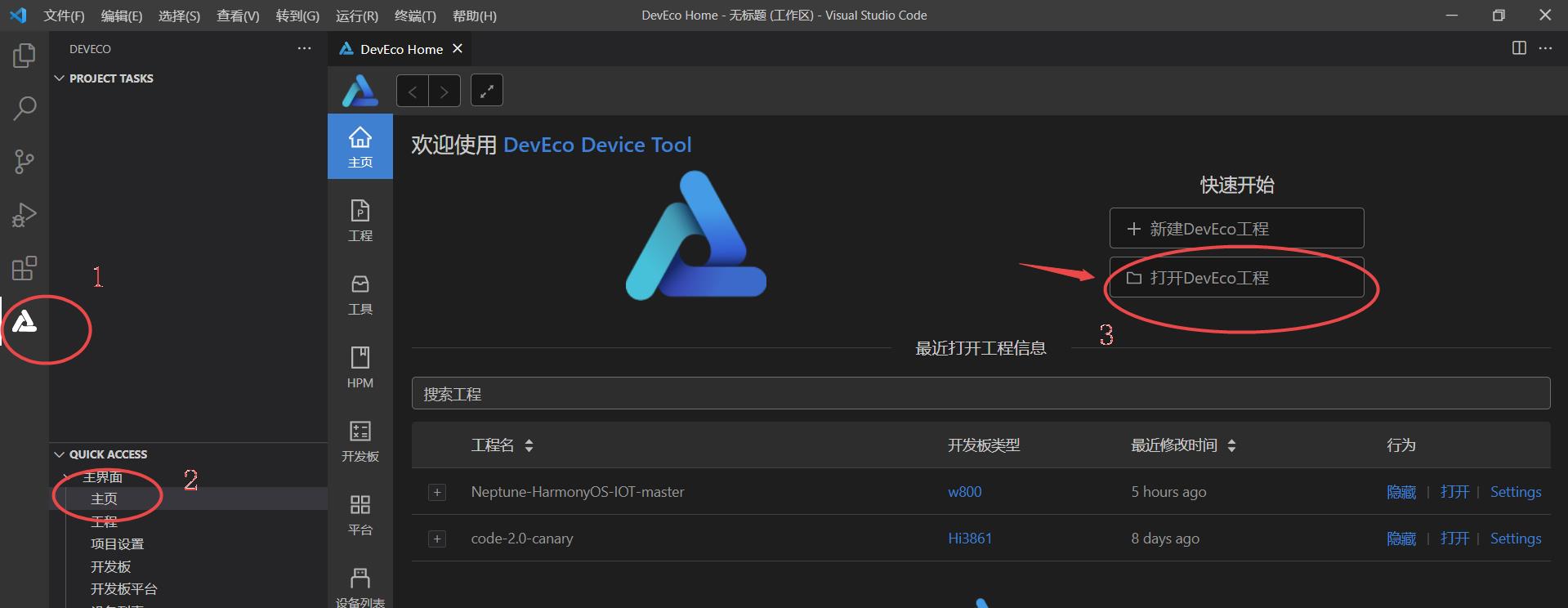

会有几个选项,对应填入,framework选hb

插入Neptune开发板,并查看com口
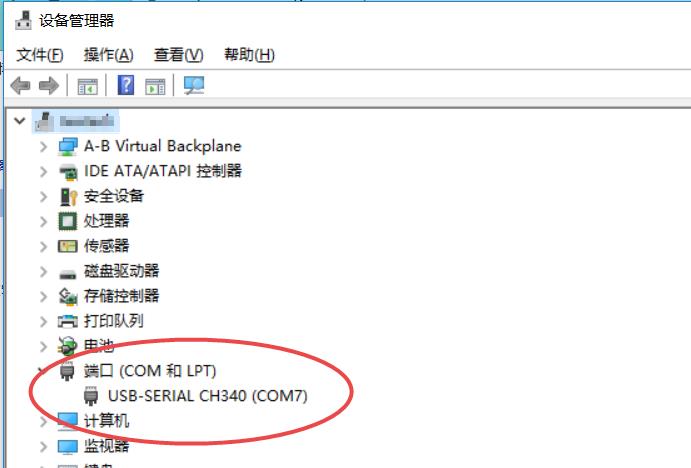
点开工程-配置工程
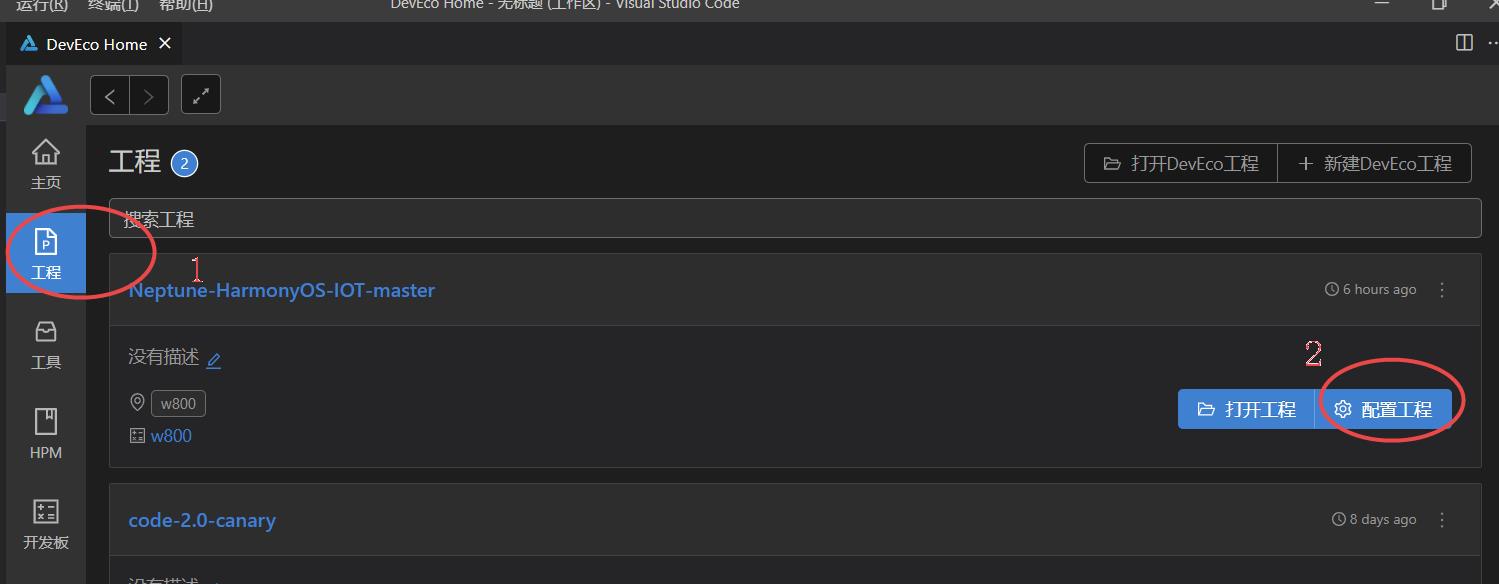
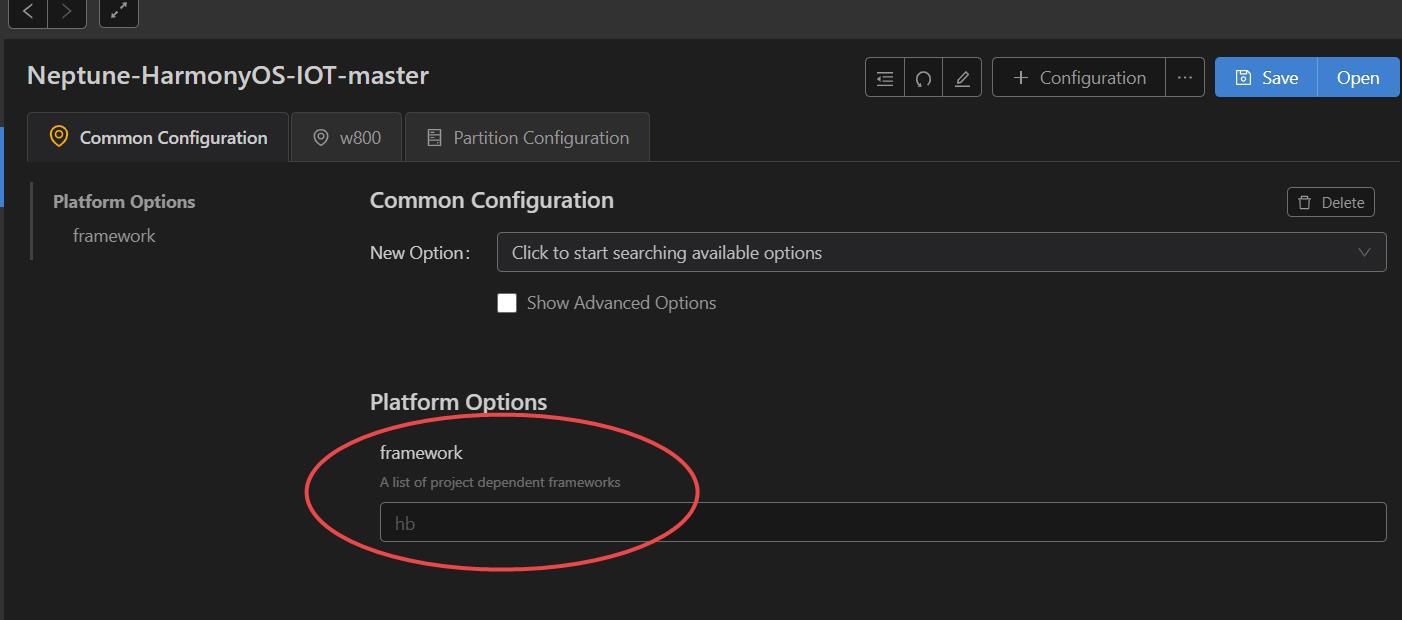
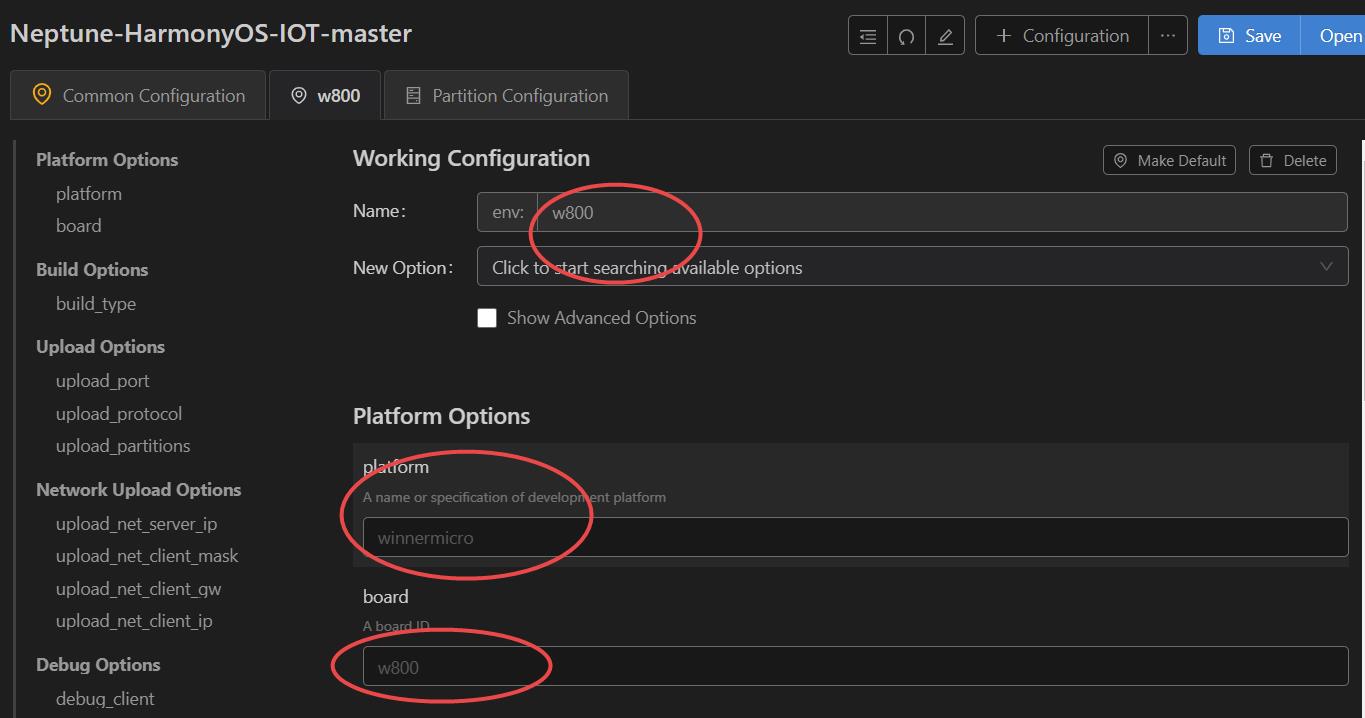
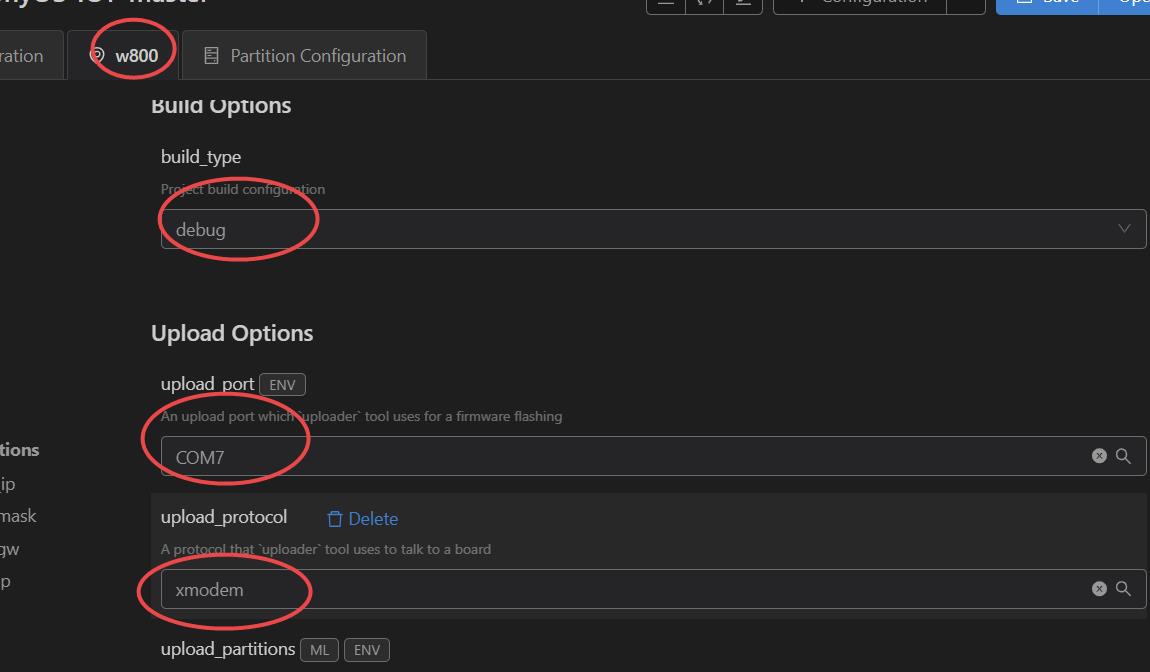

记得右上角的保存
打开工程

配置文件路径:以下目录供参考,请更改对应的路径
"F:/utils/native/lite/include",
"F:/domains/iot/link/libbuild",
"F:/base/iot_hardware/peripheral/interfaces/kits",
"F:/third_party/cmsis/CMSIS/RTOS2/Include",
"F:/Neptune-HarmonyOS-IOT-master/base/iot_hardware/interfaces/kits/wifiiot_lite",
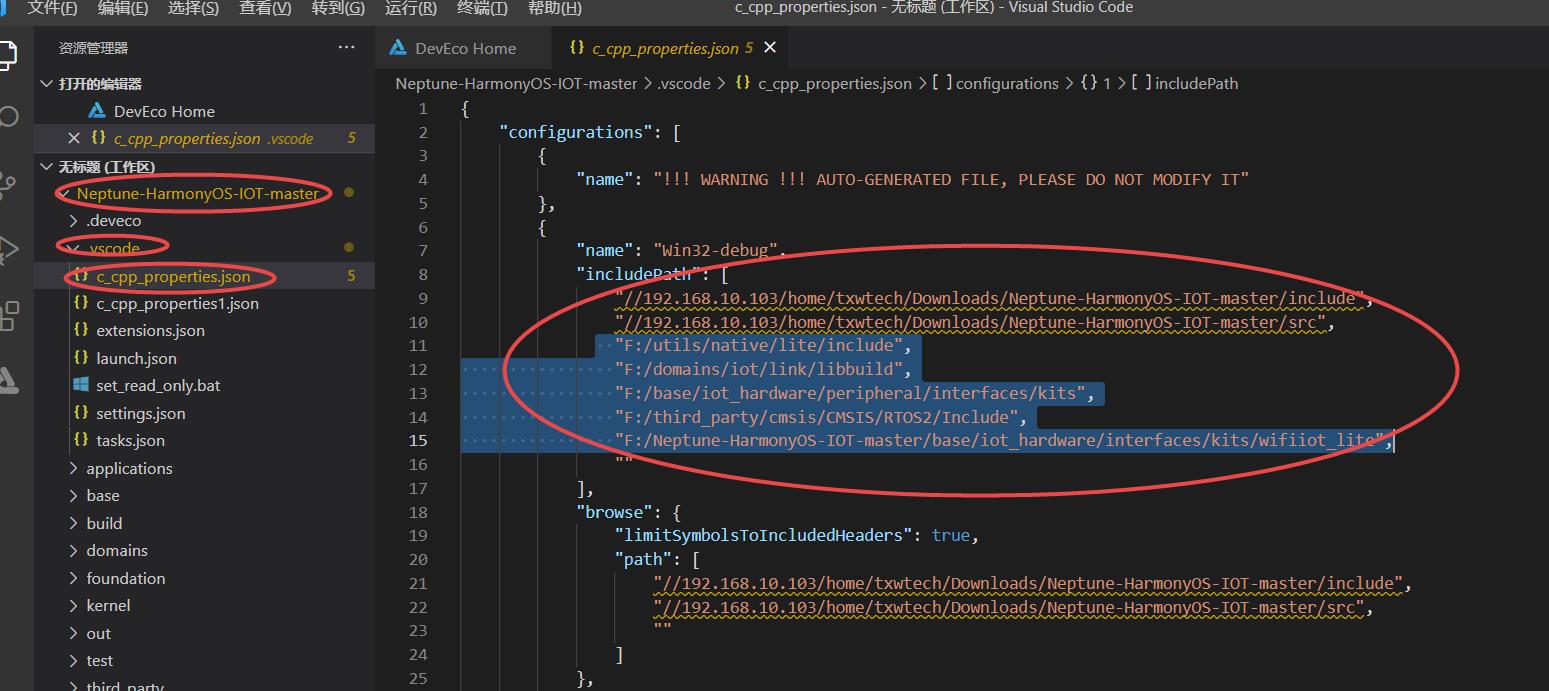
右键app文件夹--创建文件夹--比如hello1
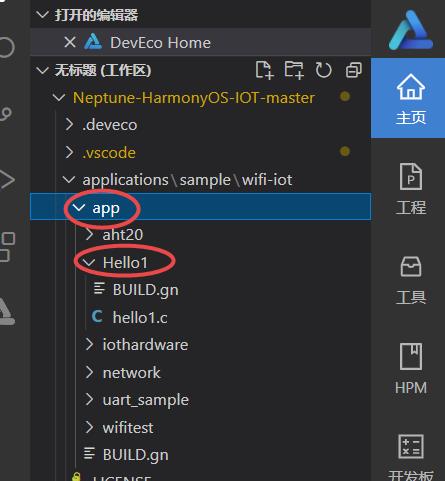
右键Hello1,创建文件, hello1.c 与BUILD.gn
hello1.c
#include <stdio.h> #include <unistd.h> #include "cmsis_os2.h" #include "ohos_init.h" #include "wifiiot_gpio.h" #include "wifiiot_gpio_ex.h" #include "wifiiot_gpio_w800.h" static void* GpioTask(const char* arg) { (void) arg; for(int i=1;i<=10;i++) { /* code */ printf("hello world!= %d\n",i); } } static void hello1(void) { osThreadAttr_t attr={0}; attr.name="GpioTask"; attr.stack_size=4096; attr.priority=osPriorityNormal; if (osThreadNew((osThreadFunc_t)GpioTask, NULL, &attr) == NULL) { printf("[GpioExample] Falied to create GpioTask!\n"); } } SYS_RUN(hello1);
BUILD.gn
# Copyright (c) 2020 Huawei Device Co., Ltd. # Licensed under the Apache License, Version 2.0 (the "License"); # you may not use this file except in compliance with the License. # You may obtain a copy of the License at # # http://www.apache.org/licenses/LICENSE-2.0 # # Unless required by applicable law or agreed to in writing, software # distributed under the License is distributed on an "AS IS" BASIS, # WITHOUT WARRANTIES OR CONDITIONS OF ANY KIND, either express or implied. # See the License for the specific language governing permissions and # limitations under the License. static_library("hello1") { sources = [ "hello1.c" ] include_dirs = [ "//utils/native/lite/include", "//kernel/liteos_m/components/cmsis/2.0", "//base/iot_hardware/interfaces/kits/wifiiot_lite", ] }
修改app同目录的BUILD.gn

代码:
# Copyright (c) 2020 Huawei Device Co., Ltd. # Licensed under the Apache License, Version 2.0 (the "License"); # you may not use this file except in compliance with the License. # You may obtain a copy of the License at # # http://www.apache.org/licenses/LICENSE-2.0 # # Unless required by applicable law or agreed to in writing, software # distributed under the License is distributed on an "AS IS" BASIS, # WITHOUT WARRANTIES OR CONDITIONS OF ANY KIND, either express or implied. # See the License for the specific language governing permissions and # limitations under the License. import("//build/lite/config/component/lite_component.gni") lite_component("app") { features = [ # "startup", #"iothardware:gpio_example", # "wifitest:wifi_test", #"iothardware:lowpower_example" # "uart_sample:uart_demo" "Hello1:hello1", ] }
添加内容后,都记得CTRL+S保存
Linux界面的编译方法:
https://www.cnblogs.com/txwtech/p/15086496.html
、、、、、、、、、、、、、、、、、、、、、、、、、、、、、、、、、、、、、、、、、、、、、、、、、、、、、、、、、、、、、、、、、、、、、、、、、、、、、、、、、、、、、、、、、、、、、、、、、、、、、、、、、
windows界面使用putty.exe链接ubuntu,这个windows是远程编译方法。
参考链接:http://www.pc6.com/softview/SoftView_81789.html
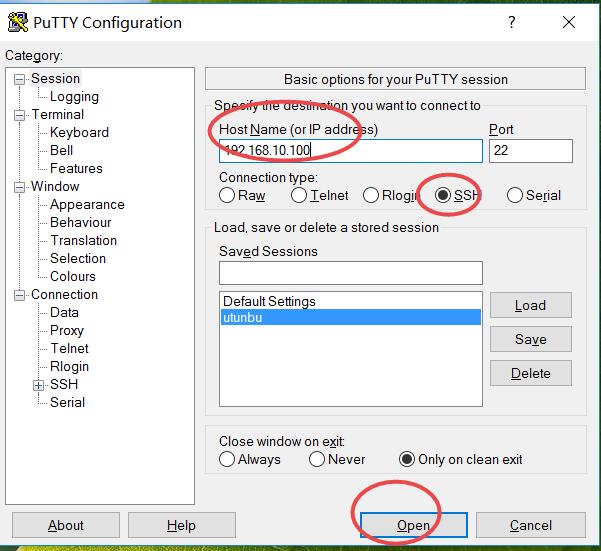
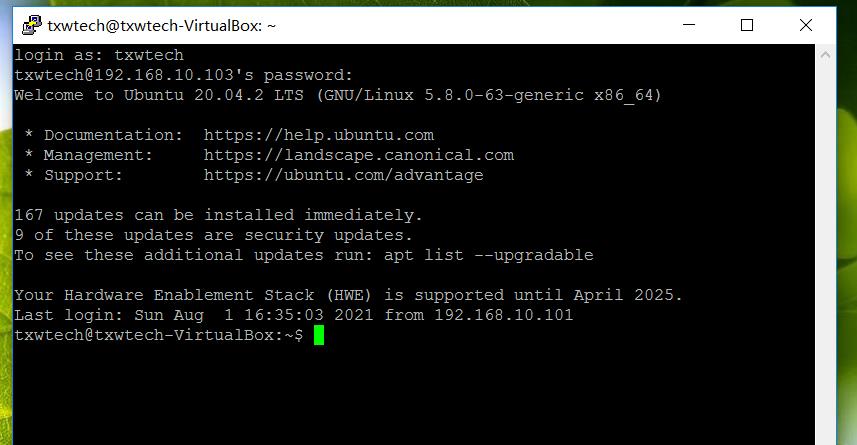
cd 进入Neptune-HarmonyOS-IOT-master目录,可以看到build.py, 编译源码 输入:python build.py w800 make[2]: 进入目录“/home/txwtech/Downloads/Neptune-HarmonyOS-IOT-master/vendor/winnermicro/w800/src/app/cJSON” make[2]: 离开目录“/home/txwtech/Downloads/Neptune-HarmonyOS-IOT-master/vendor/winnermicro/w800/src/app/cJSON” make[1]: 离开目录“/home/txwtech/Downloads/Neptune-HarmonyOS-IOT-master/vendor/winnermicro/w800/src/app” libs has been updated. LINK w800.elf OBJCOPY w800.bin generate normal image completed. compress binary completed. generate compressed image completed. build finished! Build success! [170/170] STAMP obj/vendor/winnermicro/w800/build_w800_sdk.stamp ohos w800 build success!
、、、、、、、、、、、、、、、、、、、、、、、、、、、、、、、、、、、、、、、、、、、、、、、、、、、、、、、、、、、、、、、、、、、、、、、、、、、、、、、、、、、、、、、、、、、、、、、、、、、、、、、、、、、、、、、、、、、、
上传程序到开发板
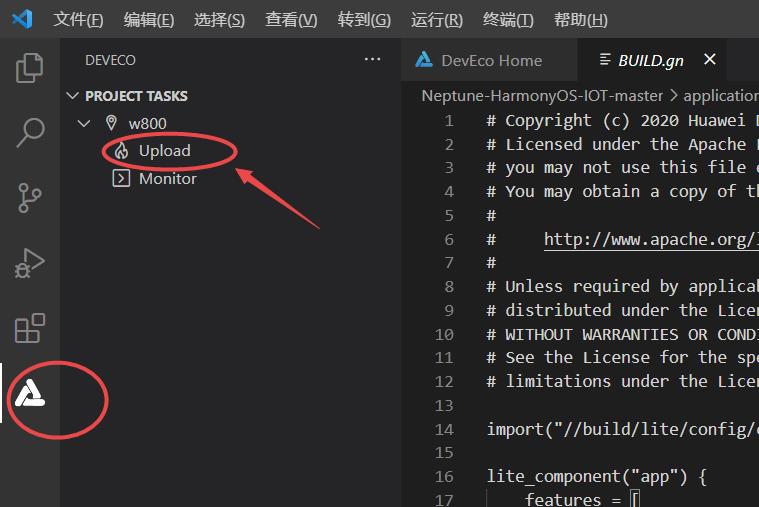

启动串口监视功能,查看串口打印内容,验证是否上传成功:
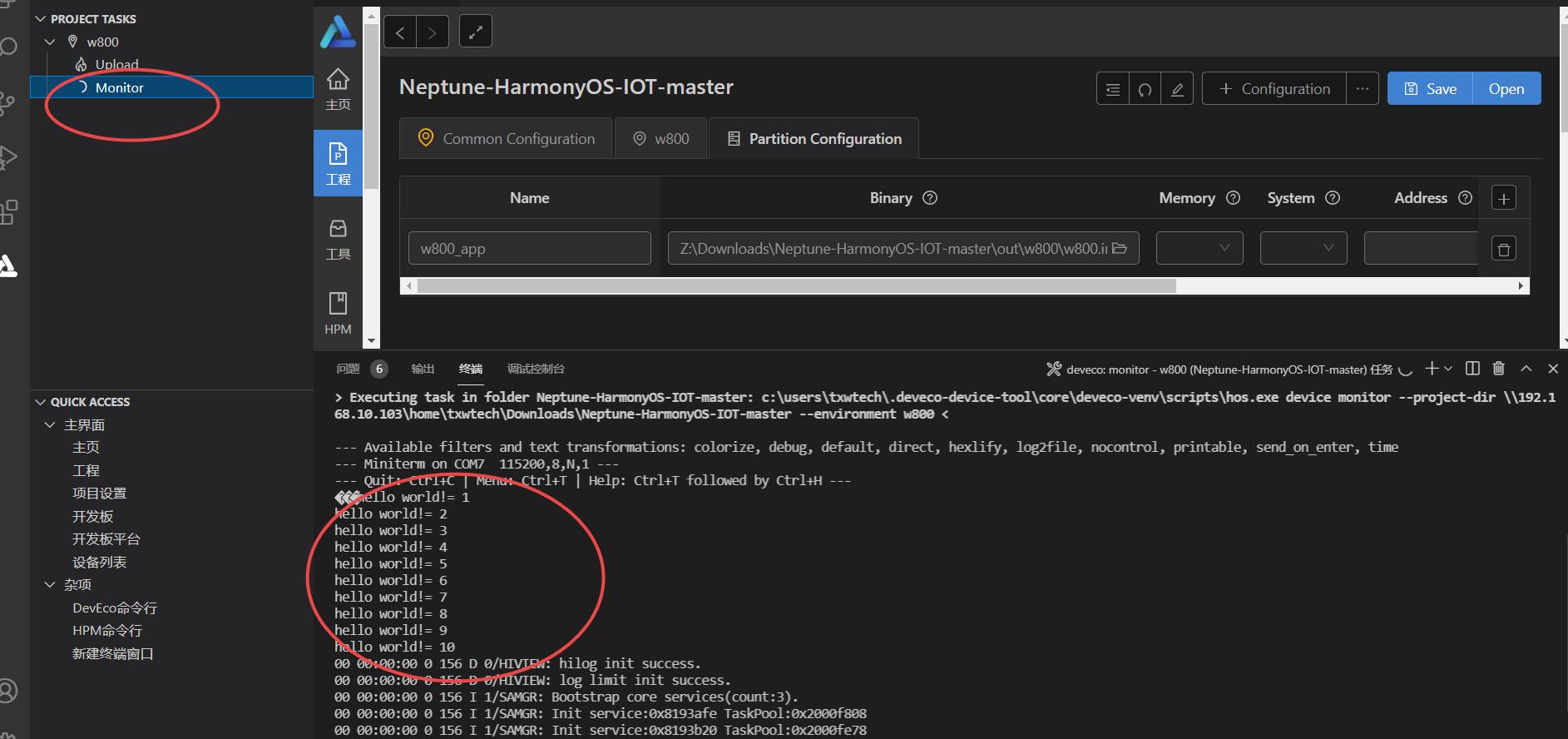
欢迎讨论,相互学习。
cdtxw@foxmail.com



 浙公网安备 33010602011771号
浙公网安备 33010602011771号